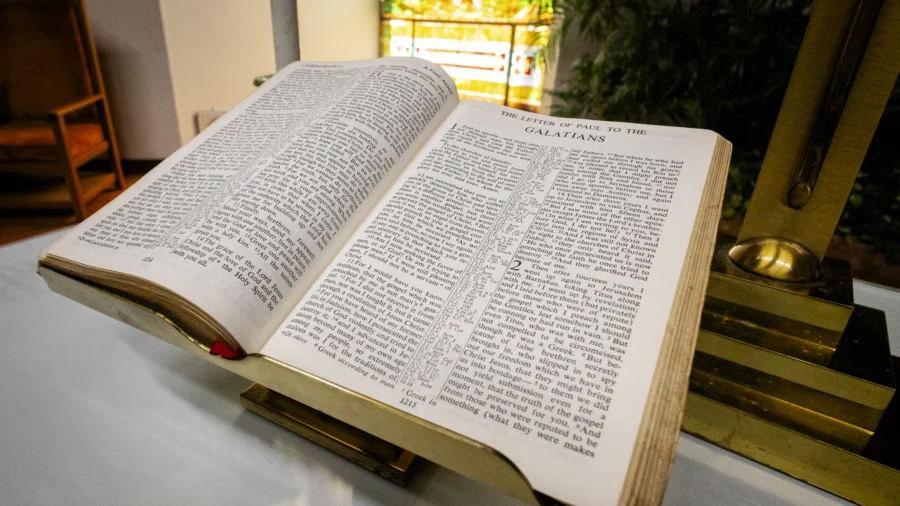Oklahoma’s top state school official announced on June 27 that public schools must incorporate the Bible in curricula, effective immediately.
During a meeting at the State Board of Education, Oklahoma State Superintendent of Public Instruction Ryan Walters framed the decision about incorporating the Bible into public schools as one that is primarily about teaching children about the foundations of Western civilization and the U.S. legal system.
“The Bible is a necessary historical document to teach our kids about the history of this country, to have a complete understanding of Western civilization, to have an understanding of the basis of our legal system,” Mr. Walters said on June 27.
Every classroom in Oklahoma must now have a Bible and teachers must use it during their instruction, he said.
Critics of the move, he added in a social media post, “cannot rewrite history” by omitting both the Bible and the Ten Commandments from school curricula.
The move follows a law that was passed in Louisiana earlier this month that mandated that all public classrooms in the state display the Ten Commandments, prompting lawsuits from groups like the American Civil Liberties Union (ACLU), who have argued that the directive violates the U.S. Constitution’s First Amendment and U.S. Supreme Court precedent.
The Oklahoma directive aligns with “the educational standards approved on or about May 2019, with which all districts must comply,” said a news release from Mr. Walters’s office. The move to have Bibles in classrooms is “effective immediately,” the release said.
“Without basic knowledge of [the Bible], Oklahoma students are unable to properly contextualize the foundation of our nation,” he said. “This is not merely an educational directive but a crucial step in ensuring our students grasp the core values and historical context of our country.”
Mr. Walters’s directive will likely be challenged in court by civil liberties groups. The ACLU didn’t respond to a request for comment by press time.
The ACLU and other civil liberties groups, in a June 24 lawsuit targeting the Louisiana Ten Commandments law, said that the rule “substantially interferes with and burdens” parents’ and students’ First Amendment rights.
“The law runs afoul of the First Amendment’s prohibition against the government taking sides on questions of theological debate,” the group said.
After Mr. Walters’s announcement, several Oklahoma Democrats criticized the mandate. “Requiring a Bible in every classroom does not improve Oklahoma’s ranking of 49th in education,” state Rep. Mickey Dollens, a Democrat, told a local Fox affiliate. “Ryan Walters should focus on educating students, not evangelizing them.”
The move also comes after the Oklahoma Supreme Court this month blocked an attempt to set up the first publicly funded religious charter school in the United States, ordering the state to rescind its contract with the institution.
“Under Oklahoma law, a charter school is a public school,” wrote state Supreme Court Judge James Winchester for the majority. “As such, a charter school must be nonsectarian. However, St. Isidore will evangelize the Catholic faith as part of its school curriculum while sponsored by the State.”
Oklahoma Attorney General Gentner Drummond praised the ruling, saying that the U.S. Constitution’s framers had wanted to prevent the state “from sponsoring any religion at all.” The ACLU described the court’s decision as “a victory for the separation of church and state.”
But Mr. Walters disagreed with those assertions and criticized the state’s highest court. In a recent post, he said the court’s decision went against what “Oklahoma parents want.”
Elaborating, he said that the “words ‘separation of church and state’ do not appear in our Constitution,” adding that he believes the state Supreme Court “misunderstood” cases involving what he described as “sanctioned discrimination against Christians based solely on their faith.”
He suggested he might appeal the court’s decision.
From The Epoch Times


